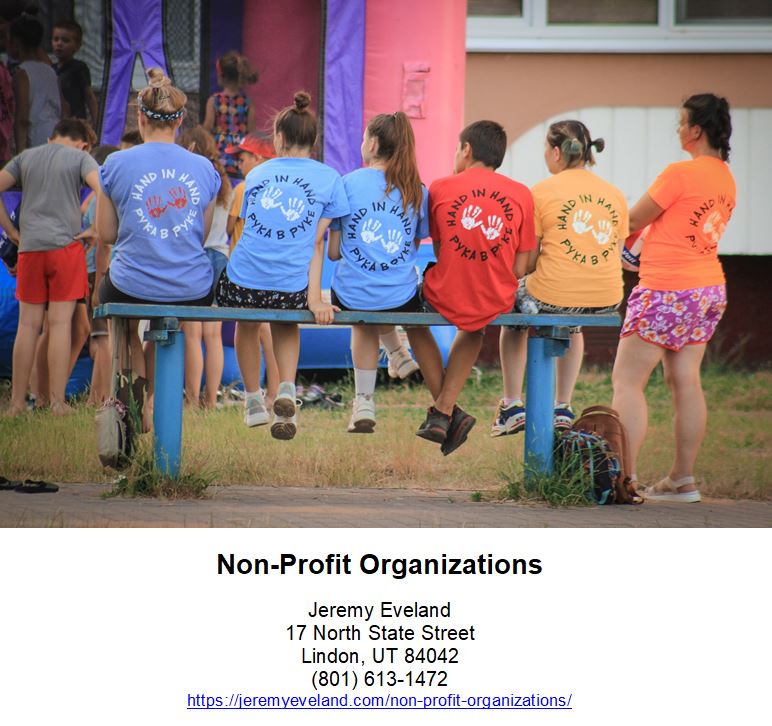As businesses become increasingly aware of their impact on the environment, the importance of environmental advocacy organizations cannot be understated. These organizations play a crucial role in promoting sustainable practices, raising awareness about environmental issues, and advocating for policies that support a cleaner and healthier planet. By harnessing the power of collective action, environmental advocacy organizations are able to create significant change and hold businesses accountable for their environmental stewardship. In this article, we will explore the role of these organizations and delve into the benefits they provide for businesses looking to prioritize sustainability and embrace environmentally responsible practices.

What are Environmental Advocacy Organizations?
Environmental advocacy organizations are non-profit or governmental organizations that work towards promoting sustainable practices, advocating for environmental protection, influencing policy and legislation, engaging in public education and awareness, and collaborating with communities and stakeholders. These organizations play a crucial role in safeguarding the environment and addressing pressing environmental issues.
Importance of Environmental Advocacy Organizations
Promoting Sustainable Practices
Environmental advocacy organizations play a vital role in promoting sustainable practices among individuals, businesses, and communities. Through education and awareness campaigns, they encourage the adoption of sustainable solutions such as renewable energy, waste reduction, and conservation of resources. By promoting these practices, these organizations contribute to the overall well-being of the environment and the future generations.
Advocating for Environmental Protection
One of the primary roles of environmental advocacy organizations is to advocate for the protection of the environment. They actively work towards preserving natural spaces, endangered species habitats, and ecosystems. Through legal actions, public campaigns, and lobbying efforts, these organizations raise their voices to protect the environment from various threats, such as pollution, deforestation, and climate change.
Influencing Policy and Legislation
Environmental advocacy organizations exert influence on policymakers and legislators to develop and implement environmental-friendly policies and legislation. By conducting research, providing expert opinions, and advocating for sustainable practices, they contribute to shaping laws that prioritize environmental protection. Through their efforts, these organizations ensure that governments at various levels take the necessary steps to address environmental challenges effectively.
Engaging in Public Education and Awareness
Environmental advocacy organizations play a crucial role in educating the public about environmental issues and raising awareness about the importance of environmental conservation. They organize workshops, seminars, and awareness campaigns to inform individuals about sustainable practices, biodiversity, climate change, and other environmental concerns. By disseminating information, they empower individuals to make informed choices that positively impact the environment.
Collaborating with Communities and Stakeholders
Environmental advocacy organizations actively engage with communities and stakeholders to address environmental challenges collectively. They collaborate with local communities, indigenous groups, businesses, and other organizations to develop comprehensive strategies for environmental protection. By fostering partnerships and collaboration, these organizations ensure a holistic approach to environmental advocacy and maximize their impact.
Types of Environmental Advocacy Organizations
Non-Profit Environmental Organizations
Non-profit environmental organizations are independent organizations that operate primarily on donations and grants. These organizations work on a range of environmental issues, from climate change and conservation to sustainable development. Non-profit environmental organizations rely on the support of individuals and businesses to carry out their advocacy work.
Governmental Environmental Agencies
Governmental environmental agencies are departments or agencies established by governments to oversee and regulate environmental matters. These agencies develop and implement policies, enforce environmental laws, and monitor compliance. They play a crucial role in environmental protection at local, regional, and national levels.
International Environmental Organizations
International environmental organizations operate on a global scale and focus on addressing environmental issues that transcend national boundaries. These organizations collaborate with governments, non-profit organizations, and the private sector to promote sustainable development, biodiversity conservation, and climate change mitigation. They work towards achieving global environmental goals and provide a platform for international cooperation.
Grassroots Environmental Organizations
Grassroots environmental organizations are community-based organizations that work at the local level to address environmental issues. These organizations are driven by the communities they serve and work to protect local environments, promote sustainable practices, and engage residents in environmental initiatives. Grassroots environmental organizations play a vital role in raising awareness and fostering environmental stewardship within communities.
Famous Environmental Advocacy Organizations
Greenpeace
Greenpeace is a renowned international environmental organization known for its direct action campaigns and peaceful protests. It focuses on issues such as climate change, deforestation, overfishing, and pollution. Greenpeace uses non-violent activism to draw attention to environmental issues and advocate for change.
World Wildlife Fund (WWF)
The World Wildlife Fund is a global organization that works towards conserving nature and reducing the most pressing threats to the diversity of life on Earth. WWF focuses on protecting habitats, endangered species, and promoting sustainable practices. They collaborate with governments, businesses, and communities to achieve their conservation goals.
Sierra Club
Sierra Club is one of the oldest and largest environmental organizations in the United States. It focuses on environmental conservation, clean energy, and addressing climate change. Sierra Club engages in advocacy, litigation, and grassroots organizing to protect natural resources and promote sustainable practices.
Friends of the Earth
Friends of the Earth is an international network of environmental organizations that advocates for environmental and social justice. They work on a wide range of issues, including biodiversity conservation, climate justice, and sustainable agriculture. Friends of the Earth campaigns for policy changes and promotes grassroots activism.
Environmental Defense Fund (EDF)
The Environmental Defense Fund is a leading American environmental organization that works to address urgent environmental challenges. They focus on areas such as climate change, oceans, habitats, and energy. EDF combines science, economics, and advocacy to find practical solutions and engage with businesses and governments to drive change.

How to Get Involved with Environmental Advocacy Organizations
Joining as a Member or Volunteer
One of the primary ways to get involved with environmental advocacy organizations is by becoming a member or a volunteer. Many organizations offer membership programs that provide individuals with a platform to support environmental causes, attend events, and participate in advocacy efforts. Volunteering allows individuals to directly contribute their time and skills towards environmental projects and campaigns.
Donating to Support Environmental Causes
Financial contributions are crucial for environmental advocacy organizations to carry out their work effectively. Individuals and businesses can make donations to support these organizations’ initiatives, research, and campaigns. Donations help fund environmental projects, legal actions, public awareness campaigns, and research that drive positive change.
Participating in Events and Campaigns
Environmental advocacy organizations organize various events and campaigns to raise awareness and mobilize support for environmental causes. Individuals can actively participate in these events by attending rallies, conferences, workshops, and educational programs. Participation in these events helps educate individuals, build networks, and amplify environmental messages.
Becoming an Advocate or Activist
Individuals passionate about environmental issues can become advocates or activists for environmental advocacy organizations. Advocates work to promote the organization’s objectives through public speaking, community engagement, and lobbying efforts. Activists actively engage in direct action campaigns, peaceful protests, and other forms of activism to raise awareness and drive change.
Networking with Like-Minded Individuals
Networking with like-minded individuals can be an effective way to get involved with environmental advocacy organizations. Attending conferences, workshops, and community events allows individuals to connect with others who share a passion for the environment. Networking can lead to collaborations, partnerships, and new opportunities for environmental advocacy.
Legal Framework for Environmental Advocacy Organizations
Non-Profit Organization Laws and Regulations
Non-profit environmental organizations are subject to specific laws and regulations governing their establishment, operation, and reporting requirements. These laws typically vary depending on the jurisdiction, but common requirements include registration as a non-profit, maintaining a board of directors, and financial transparency.
Tax Benefits for Donors and Supporters
Donors and supporters of environmental advocacy organizations may be eligible for tax benefits. In many jurisdictions, individuals and businesses can deduct their donations to registered non-profit organizations from their taxable income. This incentivizes individuals and businesses to contribute financially to environmental causes.
Environmental Laws and Regulations
Environmental advocacy organizations must navigate various environmental laws and regulations that govern their advocacy efforts. These laws can include environmental impact assessments, pollution control measures, and conservation regulations. Compliance with these laws ensures that advocacy activities align with legal requirements and supports the organization’s legitimacy.
Permitting and Licensing Requirements
Depending on the nature of their advocacy work, environmental advocacy organizations may need to obtain permits and licenses. For example, organizing public events, conducting research, or engaging in certain advocacy activities may require permits or licenses. It is essential for organizations to understand and comply with the permitting and licensing requirements to avoid any legal issues.
Challenges Faced by Environmental Advocacy Organizations
Funding Constraints
Environmental advocacy organizations often face funding constraints, relying primarily on grants, donations, and memberships. Limited financial resources can restrict their ability to carry out extensive research, implement large-scale projects, and expand their reach. To overcome this challenge, organizations need to diversify their funding sources and develop strategic partnerships.
Lobbying and Interest Opposition
Advocating for environmental protection often faces opposition from industries and interest groups that have conflicting priorities. Lobbying efforts by these groups can create roadblocks for environmental advocacy organizations and challenge the implementation of progressive policies. Organizations need to strategize their lobbying efforts and build alliances to counter opposition effectively.
Complexity of Environmental Issues
Environmental issues can be complex and multifaceted, requiring expertise in various areas such as science, policy, and law. Environmental advocacy organizations need to navigate this complexity and ensure that their advocacy efforts are based on credible scientific research and expert opinions. Building partnerships with experts and scientists can enhance their ability to address complex environmental challenges effectively.
Managing Public Perception and Criticism
Environmental advocacy organizations may face public perception challenges, with some individuals perceiving them as radical or extreme. Organizations need to actively manage their public image and effectively communicate their objectives and activities. Transparency, education, and media outreach can help correct misconceptions and build public support.
Legal and Regulatory Roadblocks
Navigating legal and regulatory roadblocks can present significant challenges for environmental advocacy organizations. Laws that restrict advocacy activities or favor certain industries can impede progress in addressing environmental issues. Organizations need to stay informed about the legal landscape and work towards shaping favorable policies and regulations.
Success Stories of Environmental Advocacy Organizations
Preservation of Endangered Species Habitats
Environmental advocacy organizations have played a crucial role in preserving habitats for endangered species. Their efforts have led to the establishment of protected areas, restoration of critical habitats, and successful breeding programs. These organizations have contributed to the recovery of various endangered species, including the bald eagle, gray wolf, and California condor.
Prevention of Environmental Pollution
Through awareness campaigns, legal actions, and lobbying efforts, environmental advocacy organizations have played a significant role in preventing and mitigating environmental pollution. Their advocacy has led to the tightening of regulations on industrial emissions, waste management, and water pollution. These efforts have contributed to cleaner air, water, and ecosystems.
Halting Destructive Development Projects
Environmental advocacy organizations have successfully halted destructive development projects that would have had severe environmental impacts. Through legal challenges, public campaigns, and community organizing, these organizations have prevented deforestation, protected sensitive ecosystems, and preserved cultural heritage sites.
Land and Forest Conservation Efforts
Environmental advocacy organizations have been instrumental in land and forest conservation efforts. Through partnerships and collaborations, they have contributed to the establishment of national parks, protected areas, and sustainable forest management practices. These initiatives have helped conserve biodiversity, protect natural resources, and mitigate climate change.
Promotion of Renewable Energy Sources
Environmental advocacy organizations have played a vital role in promoting the adoption of renewable energy sources. Their advocacy efforts have led to increased investments in solar, wind, and hydroelectric power, accelerating the transition towards a clean energy future. By promoting renewable energy, these organizations contribute to reducing greenhouse gas emissions and combating climate change.

Collaboration Between Environmental Advocacy Organizations and Businesses
Corporate Social Responsibility Initiatives
Environmental advocacy organizations collaborate with businesses through corporate social responsibility (CSR) initiatives. These initiatives involve businesses integrating environmentally sustainable practices into their operations, supply chains, and community engagement efforts. By partnering with environmental advocacy organizations, businesses can enhance their environmental performance and contribute to positive change.
Partnerships for Sustainable Development
Environmental advocacy organizations partner with businesses to drive sustainable development projects. These partnerships aim to balance economic growth with environmental sustainability, social equity, and community well-being. Through joint efforts, these organizations and businesses can implement sustainability initiatives that create lasting positive impacts.
Environmental Certification and Standards
Environmental advocacy organizations collaborate with businesses to develop and promote environmental certifications and standards. These certifications encourage businesses to adopt sustainable practices, reduce their environmental impact, and meet internationally recognized standards. By adhering to these certifications, businesses demonstrate their commitment to environmental sustainability.
Product and Process Innovation
Environmental advocacy organizations work with businesses to promote product and process innovation that reduces environmental impact. These organizations provide guidance and expertise to businesses seeking to develop eco-friendly products, embrace circular economy principles, and adopt clean technologies. By adopting innovative approaches, businesses can contribute to environmental protection and differentiate themselves in the market.
Environmental Impact Assessments
Environmental advocacy organizations often collaborate with businesses to conduct environmental impact assessments (EIAs) for projects or activities. These assessments help identify potential environmental risks and develop strategies to mitigate them. Through the partnership with advocacy organizations, businesses can ensure that their projects align with environmental regulations and minimize negative impacts.
FAQs about Environmental Advocacy Organizations
What is the role of environmental advocacy organizations?
Environmental advocacy organizations play a crucial role in promoting sustainable practices, advocating for environmental protection, influencing policy and legislation, engaging in public education and awareness, and collaborating with communities and stakeholders. They work towards safeguarding the environment and addressing pressing environmental issues.
How can businesses support environmental advocacy organizations?
Businesses can support environmental advocacy organizations by partnering with them through corporate social responsibility initiatives, participating in sustainability projects, providing financial contributions, and adopting environmentally sustainable practices in their operations. Collaboration between businesses and advocacy organizations can drive positive change and contribute to environmental conservation.
Are environmental advocacy organizations tax-exempt?
Many environmental advocacy organizations have tax-exempt status as registered non-profit organizations. This status allows them to receive tax-deductible donations and grants. However, the tax-exempt status may vary depending on the jurisdiction and the organization’s compliance with local laws and regulations.
Can individuals get legal assistance from environmental advocacy organizations?
Environmental advocacy organizations primarily focus on advocacy and policy-related work. While they may provide limited legal assistance or guidance, individuals seeking specific legal advice or representation should consult with environmental law firms or organizations specializing in legal services related to environmental issues.
How can I start my own environmental advocacy organization?
Starting your own environmental advocacy organization involves careful planning and consideration. It typically involves registering as a non-profit organization, defining clear goals and objectives, building a board of directors, securing funding sources, developing partnerships, and engaging with the community. Legal guidance can be essential to navigate the regulatory and operational requirements of starting an advocacy organization.
By providing comprehensive information on the role, importance, types, famous examples, ways to get involved, legal framework, challenges, success stories, collaboration with businesses, and frequently asked questions about environmental advocacy organizations, this article aims to educate readers and attract businesses and business owners interested in environmental advocacy to seek legal assistance from the lawyer listed on the website. The information provided showcases the significance of environmental advocacy organizations in promoting sustainable practices, influencing policies, and addressing environmental challenges.


